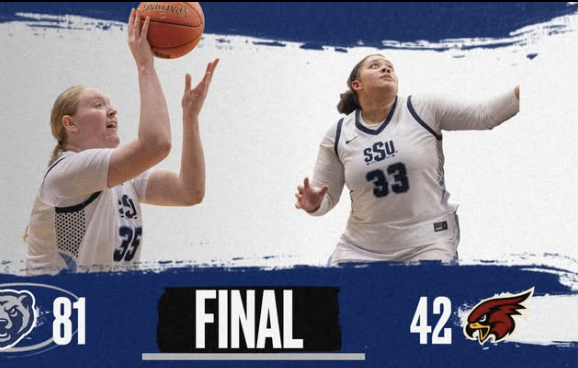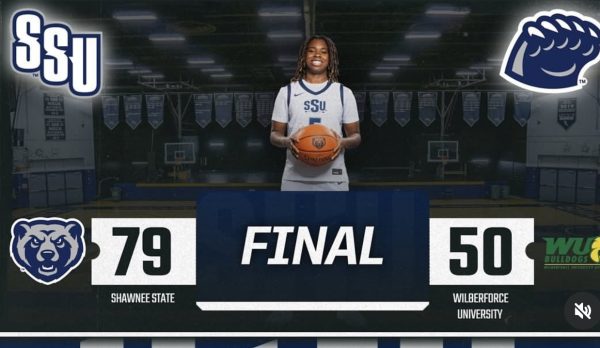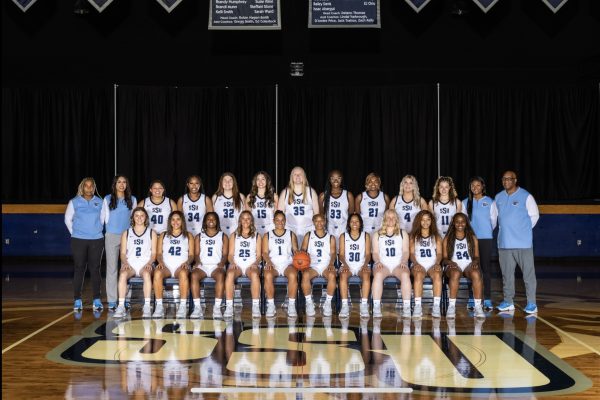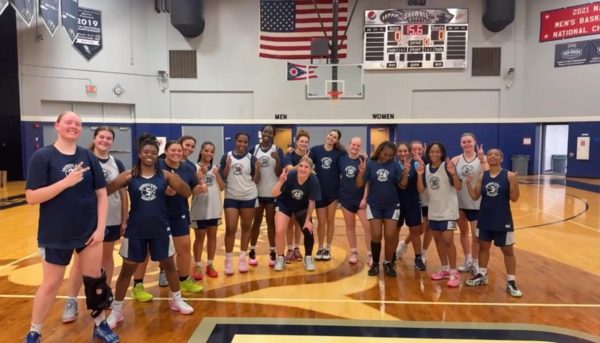Balancing Academics and Athletics as a Student-Athlete
How do student-athletes at Shawnee balance academics and athletics?
In order to ensure academic success, student-athletes must find the most effective ways to balance school and sports. The mission statement, outlined by Shawnee State’s Student-Athlete Guidelines, is “We offer competitive experiences by recruiting student-athletes with the potential to succeed.”
Student-athletes are required to have 12 semester hours during semesters of competitions. The guidelines also state, “Regular class attendance is expected of all athletes at Shawnee State University,” This means that student-athletes should always attend class over practice. Student-athletes are responsible for working with instructors to approve any class conflict ahead of time. Game schedules should be given to professors at the beginning of each semester.
Time Management
With such a tight schedule, time management is a skill that student-athletes must have to be successful. Hannah Marzolf, English Education major with a minor in Sports Coaching, participates in throwing events for the track team. Marzolf is currently a junior at SSU. To manage her time efficiently, Marzolf uses a planner. She plans her days down by the minute and keeps a schedule on her phone to always have easy access to the due dates of her assignments. “I love having a schedule because it keeps me busy and I stay productive. If more of my day is planned, I tend to stick to it and get more done,” said Marzolf. She also believes that having a busy schedule will help her in the future. “In the future when I have a job, family, and other things to juggle, I will already know how to handle it,” said Marzolf.
Sophomore Alaina Collins is on the women’s golf team at SSU. She is majoring in Exercise Science with a minor in Psychology. Collins keeps organized by creating a to-do list of her weekly assignments. Collins said, “I try to layout my week and figure out when I have time to do certain assignments. With a busy schedule, you have to plan or you just won’t get your homework done.” Collins expressed that having a tight schedule can be stressful, but she believes that it helps her with managing her time effectively. In order to prepare for an upcoming weekend tournament, she has completed all of her school work early.
Kylie Ray is a junior studying to become an Occupational Therapist. Ray is on the softball team at SSU. She manages her time by “making a lot of lists.” Ray likes to write everything out so that she has a visual of what her day is going to look like. She felt very prepared for her hectic college schedule because, as Ray said, “Time management is something my high school really emphasized all four years.” Her high school in Detroit, Michigan did not have sports, but she always participated in travel softball.
A Day in the Life of a Student-Athlete
Marzolf’s Schedule:
Marzolf likes to wake up at around 8-9 a.m. to start the day. She attends class for three to five hours and then practices and works out. Marzolf wraps up the day by doing about two hours of homework and tries to go to bed around midnight.
Collins’s Schedule:
Collins wakes up at 8 a.m. for her chemistry class. Sometimes, she has to go to the lab component of this class directly after. After that, Collins will work on homework until about 3 p.m. She gets ready then goes to practice which can last for multiple hours. When practice concludes, at around 6-6:30 p.m, she gets ready to leave for Illuminate or Delight meetings, or she keeps working on assignments.
Ray’s Schedule:
Ray begins her day by lifting weights at 6 a.m. Following that, she has a separate workout at 8:30 a.m. She attends classes throughout the day and tries to get her homework done between classes. Then, she goes to practice for about two hours. After practice, Ray likes to go with her roommates to practice hitting around 9-10 p.m. When she is done hitting, she studies for any tests she may have.
Staying Motivated
According to the Mid-South Conference website, Marzolf and Ray earned Academic All-Conference honors. To be eligible for this award, the student-athlete must be at least a sophomore and have a minimum of a 3.25 GPA. When asked how Marzolf stayed motivated to achieve these honors, she said, “I want to do well in school and get my dream job. I want to make my mom proud especially.” When looking back at her college years, she wants to be able to say that she “accomplished something.” Ray said, “Progress helps me stay motivated.” In both academics and athletics, Ray keeps striving to get better and work even harder.

Katelyn Pauley is a junior majoring in English/Humanities Integrated Language Arts with Adolescent to Young Adult (Grades 7-12). She graduated from Lawrence...






